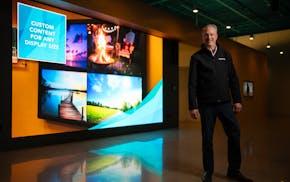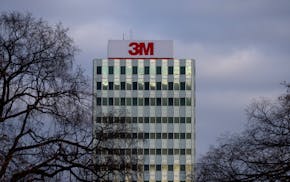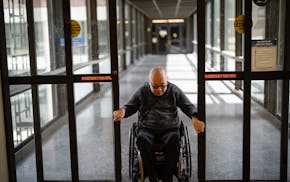One of the hottest gifts this holiday season might not fit under the tree.
It might not even fit in some houses.
And Best Buy has decided to lean into the trend.
As prices fall and options grow, more Americans are gravitating toward XXL TVs, which have screens larger than 97 inches — nearly twice the average size of TVs sold in recent years.
"Our expectations are pretty strong for the XXL TV market this holiday season; we think it will be one of the headline, doorbuster items on Black Friday and throughout the season," said Paul Gagnon, consumer technology industry adviser at market research firm Circana.
Best Buy has already doubled its selection of the supersized screens and now has at least one on display in 700 stores. The Richfield-based retailer is also promising free delivery and installation for all TVs 97 inches and larger.
"The addition of XXL TVs to our stores provides our customers with an experience they won't find anywhere else," Best Buy Senior Vice President Blake Hampton said in a statement. "We're seeing growing interest from shoppers in XXL TVs, especially as the technology gets better and more options are available at a variety of prices."
So far this year, sales of XXL TVs have jumped nearly 900% while prices have dropped in half, according to Circana. On average, an XXL screen now costs about $3,100; Best Buy has one on sale for $2,000.
Size is the No. 1 reason shoppers upgrade their TV, which happens every six years or so, Gagnon said.
Normally they'll go up about 10 inches per upgrade, but as larger screens cost less thanks to better technology and supply-chain efficiencies, a more massive upgrade might make sense.
Best Buy is hoping the XXL TVs will help end a long stretch of stagnant sales and get more people inside stores throughout the holiday shopping season and beyond. The pandemic disrupted the normal upgrade cycle for a lot of consumer electronics — something felt well up the supply chain at 3M and other manufacturers, too.
Company leaders are optimistic the worst is behind them, especially as that upgrade cycle resumes for the millions of electronics purchased during COVID-19 lockdowns. They saw the start of that cycle with increased laptop sales during the second quarter.
"People are just going to want new devices," Best Buy CEO Corie Barry told investors this summer. "I think you start to see the total industry then rebound."
Gagnon said he sees a similar light at the end of the tunnel for Best Buy and other retailers.
"We are hitting the end of the down cycle and seeing broader growth in the consumer electronics market," he said.

AVI Systems rebrands as Forté as it passes $500M revenue milestone

The New York Times' Kathleen Hennessey is named Star Tribune's top editor

Maplewood-based 3M steeling for tariffs to tax profits

As buildings close, navigating downtown St. Paul skyways has become a hassle

